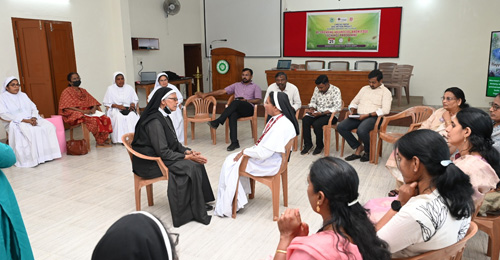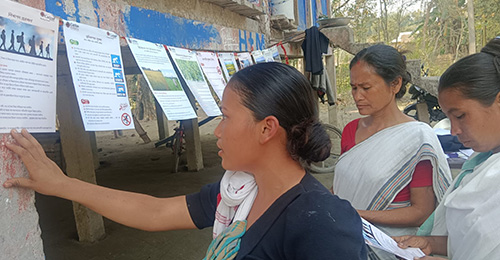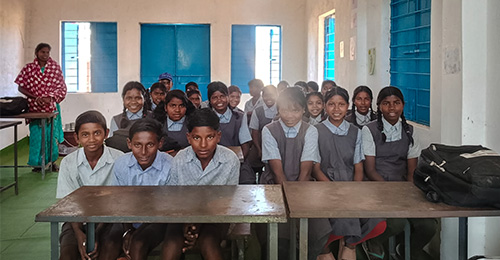It took years for the women of this community to speak up and demand what their children were entitled to- a Mini Anganwadi

By some estimates, as many as 85 percent of some villages of Musahars suffer from endemic hunger and diseases such as malaria and kala azar, causing pre-mature deaths. Lack of dedicated anganwadi centres (AWCs) exposes the children and women to discrimination in accessing health care services, thereby foregoing their entitlements. Abject poverty, discrimination and social exclusion have disproportionately affected the Musahar communities, accruing abysmally low benefits from the government programmes.
Kapasiya village under the block of Kochas in Rohtas district of Bihar, offers a look into one such Mahadalit hamlet, lacking Anganwadi centre within reach for its children and women. Anganwadi (courtyard shelter), village based health care services to combat child hunger and malnutrition, provides basic health care through contraceptive counseling and supply, nutrition education and supplementation, and pre-school activities. It caters to children under six years and pregnant and lactating women. When the Mata Samiti members under ROSHNI learned about the provision of Mini Angawadi under the Integrated Child Development Services (ICDS) of the Government from ROSHNI staff, they decided to act!
ICDS provides for Mini Anganwadi for tolas/hamlets with atleast 150 population, with 15-20 beneficiaries therein, while the main Anganwadi serves a 1000 population. Equipped with information and guidance, the members of Mata Samiti along with the ROSHNI coordinator marched to the Child Development Project Officer and Village Head/Mukhiya and submitted the applications seeking a Mini Anganwadi in their hamlet. They decided to uphold the demand in the Gram Sabha as well. On February 1, the Mukhiya accepted the representation and assured suitable action in this regard. It took about 3 years for the women of Mata Samitis to get confident to speak up and demand their rights and entitlements.
When ROSHNI programme of Caritas India, supported by Caritas Germany started in 2014, it focused on enrolment of children of the Musahar community into schools with realisation of educational entitlements. Women were organised into Mata Samitis and girl children into Roshni Ki Toli for localized dialogues and actions to educate the community on issues of education and health care, and participation in the Gram Sabhas. Now, with this show od community strength, ROSHNI is all set to strengthen the engagement of women, men and youth on issues of child development, by enabling them to actively participate in the Gram Sabha and interact with service providers.
Upcoming News
Strengthening grassroots recovery in Wayanad through Safe Within Project
Caritas India strengthened community centred disaster recovery through a four day accompaniment support visit to...
LEARN MOREFlood‑prone communities in Assam and Tripura are better prepared through We4Resilience
The We4Resilience Campaign under Caritas India’s SARAL (Strengthening Adaptation, Resilience and Livelihoods) project, supported by...
LEARN MOREChildren Lead the Fight for Safe Education
In Remhla, a small forest-surrounded village in the Sarguja district of Chhattisgarh, the middle school...
LEARN MORE



 91 -11 - 2336 3390
91 -11 - 2336 3390  director@caritasindia.org
director@caritasindia.org 